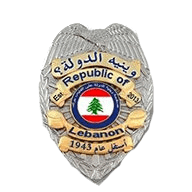Overview
As part of the Water and Environment Support (WES) in the Southern Neighborhood region project, a Regional Activity focusing on ‘Waste Water Treatment for Reuse’ (RW-5-REG) was prepared and delivered to involve designated participants representing different stakeholders from the WES Partner Countries (PCs), namely Algeria, Egypt, Jordan, Lebanon, Morocco, Palestine, and Tunisia.
The Activity was organised to build the capacity of the PCs on proper treatment of wastewater, focusing on small Wastewater Treatment Plants (WWTPs) in rural zones with a view to safe effluent reuse. It included technological aspects for reuse (best available technologies), planning for wastewater treatment, operation and maintenance aspects, financial management options of WWTPs in addition to identification of suitable sites to accommodate possibilities for reuse, assessment of impacts of treated wastewater reuse, and recommended mitigation measures, and incentives to improve attractiveness of reuse.
Objectives
The objectives of this training were:
To supply wastewater utilities and water authorities in the PCs with the basic knowledge, skills, methods and tools needed to self-initiate and steer target-oriented change processes within their own organization towards improved rural sanitation, public health and water resources management and with a specific focus on reuse in a rural setting.
To enable wastewater utilities in the partner countries to conduct new operational tasks in an effective, performance-oriented and sustainable manner.
Methodology and Implementation
The team of WES Water Experts organised a 4-day on-line Regional Training in May-June 2022, during which, a number of focused and easy to follow presentations, as well as background material and exercises were used.
Regional Training main topics:
The available technologies for effluent reuse, including low-cost treatment for application under arid conditions, and practical skills relevant for the planning, selection, design, construction, operation and maintenance of small-scale, decentralized wastewater treatment (DWWT) and plants (DWWTP).
The training sessions were focused on the modules below:
Module 1: Best low-cost wastewater treatment technologies for small villages/industries and for tertiary treatment for reuse;
Module 2: Assessment of impacts of treated wastewater reuse, and recommended mitigation measures;
Module 3: Financial management options of small WWTPs in rural zones including O&M considerations;
Module 4: Incentives to improve attractiveness of reuse;
Cross Cutting Issues were in all Modules: Exercises, Complementarity, Capitalisation and Cross Fertilisation.
Results
The online Regional Training was carried out in total of 16 hours, in 4 sessions (4-hour each) and was held on 17 and 19 of May 2022, 7 and 9 of June 2022.
In total, 30 representatives of the Ministries of Water, Irrigation Authorities, River Basin Authorities, Geological Survey Agencies, Water/Wastewater utilities, local authorities, along with experts on wastewater treatment plants, decision makers, academia and NGOs from PCs, participated in this training during which they had the opportunity to:
Explore a range of wastewater treatment technologies in rural areas (low in population and located far from large built-up areas), that cannot be linked cost-effectively to larger network;
Explore the issues and challenges related to wastewater treatment;
Get introduced to solutions successfully implemented under comparable conditions;
Learn about basic and underlying engineering principles;
Understand internal and external factors that may result in failed projects;
Get familiar with operational procedures and challenges;
Get introduced to professional peers and potential cooperation partners;
Review case studies and success stories;
Implement rapid exercises in addressing practical problems;
Discuss real situations in their own countries where WCE/WDM can be implemented;
Learn about the European wastewater management practices;
Share and exchange experiences during all training sessions.
Manual
By the end of the Training, the WES water experts prepared a Manual, in which all the knowledge was summarized into a handy document that can be shared to all stakeholders related water waste management, through various communication channels.
Useful Links
https://www.wes-med.eu/activities_type/rw-5-reg-capacity-building-on-treated-waste-water-for-reuse/
https://www.wes-med.eu/wp-content/uploads/2023/01/RW-5-REG-2022.10-Manual.pdf
WES Project
The Water and Environment Support (WES) is a regional project designed to contribute to the implementation of an integrated approach to pollution reduction and prevention, in line with the Union for the Mediterranean agendas and the Barcelona Convention. WES is also meant to contribute to a more efficient management of scarce water resources in the ENI Southern Neighbourhood region.
The project aims to do so by increasing the capacity of stakeholders that are involved in pollution reduction and water management and support them in formulating and implementing the environmental and water policies.
WES supports the shift to a more sustainable consumption and production model, promotes an integrated and efficient management of water, combats plastic pollution and marine litter and fosters dialogue on key environmental and sustainable development issues. In this way, WES also supports mutual understanding, cooperation, and peace in the region.
The WES Project Countries are Algeria, Egypt, Israel, Jordan, Lebanon, Morocco, Palestine, and Tunisia. However, to ensure the coherence and effectiveness of EU funding or to promote regional cooperation, the eligibility of specific actions can be extended to neighboring countries in the Southern Neighborhood region.
For any further information on WES project, please visit: www.wes-med.eu
And follow us for all the latest updates via:
DISCLAIMER:
This publication was produced with the financial support of the European Union. Its contents are the sole responsibility of the WES Project and do not necessarily reflect the views of the European Union.
